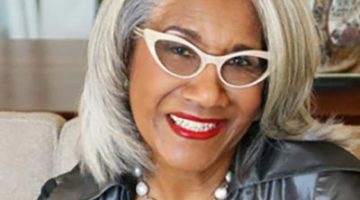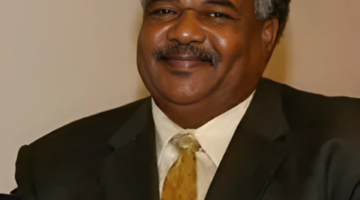 TALLAHASSEE, Fla. (AP) _ Individuals who were arrested for taking part in sit-ins, pickets and other civil rights protests in St. Augustine nearly five decades ago are finally getting a chance to clear their records.
TALLAHASSEE, Fla. (AP) _ Individuals who were arrested for taking part in sit-ins, pickets and other civil rights protests in St. Augustine nearly five decades ago are finally getting a chance to clear their records.
Gov. Charlie Crist and Florida's three Cabinet officers approved a resolution Thursday expressing “profound regret for Florida's role in sanctioning injustices'' against the civil rights activists who were protesting segregation.
Billed as the nation's oldest city, St. Augustine was a focal point of activism that helped lead to passage of the landmark Civil Rights Act of 1964.
The resolution asks the Florida Department of Law Enforcement to expunge the activists' arrest records (as well as to waive the $75 application fee) and to place those records on file in the state's archives as a testament to their courage and ideals.
“Thank you so much,'' said Dr. Robert Hayling, a dentist considered the father of St. Augustine's civil rights movement. “This is a moment in life we will never forget.''
He was among many activists, now in their 60s or older, who were on hand for the resolution's unanimous approval by Crist, Attorney General Bill McCollum, Chief Financial Officer Alex Sink and Agriculture Commissioner Charles Bronson. It was one of their last acts sitting as the Board of Executive Clemency. All four leave office Jan. 4.
Hayling was arrested many times during the civil rights movement and provided office space for out-of-town activists including the Rev. Martin Luther King Jr.
For some, the arrests have been a hindrance to getting jobs or promotions. But others didn't even realize they had records. Retired teacher Jo-Ann Martin-Hughes, 68, of Sarasota, said she didn't realize she had one until she got a letter five years ago from her employer at the time, the Manatee County School District.
Martin-Huges, originally from Brooklyn, N.Y., said she was a 20-year-old student at Florida Memorial College when she was arrested during a lay-in at a drug store's segregated fountain.
“The police came in and the first thing I said, 'Oh, those are pretty night sticks,''' she recalled. “I didn't know they were cattle prods.''
She and eight other protesters were taken away after being jolted with electric shocks from the cattle prods.
Martin-Hughes said she was fingerprinted and served 60 days in jail. But when she became a teacher in 1965, the school district never checked the records. Only after she was fingerprinted again in 1995 did she find out that she had a record.
When her brother, a judge back in Brooklyn, found out, he got in touch with Florida state Sen. Tony Hill, D-Jacksonville, who introduced a bill to expunge the activists' records. But it didn't pass. Hill then brought the resolution to the clemency board.
“This is a joyful day,'' said Goldie Eubanks Jr., 65, a retired roofer from Coconut Grove. “I just feel so elated.''
Eubanks, who was born and raised in St. Augustine, said afterward that he was arrested many times for “sit-ins, litter-bugging, trespassing.'' He began tearing up when he said he wished his father, who also had been arrested, were still alive to see the moment.












No Comment